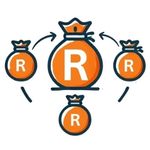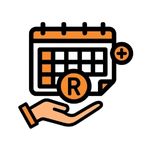
Managing multiple debts can quickly become overwhelming when repayments stretch your budget. In South Africa, debt restructuring and debt consolidation offer two distinct ways to regain control. Debt restructuring involves negotiating new terms with creditors to make payments more manageable, ideal for those already over-indebted. Debt consolidation combines several debts into one loan with a single monthly payment, better suited to borrowers with stable income and good credit. Understanding the difference helps you choose the option that fits your financial needs.
Key Takeaways
- Debt restructuring helps when credit has deteriorated: It is ideal for borrowers who are over-indebted or behind on payments, offering reduced instalments, extended repayment terms, and legal protection through creditor negotiation or debt review.
- Debt consolidation suits those with strong credit: It is best for individuals with a good credit record who wish to merge multiple debts into one loan, simplifying repayments and possibly lowering interest costs while maintaining access to credit.
- Choosing depends on credit status: Debt consolidation works when you can still qualify for credit and want to simplify payments, while debt restructuring is better when you are struggling to meet commitments and need formal relief to regain stability.
About Arcadia Finance
Apply for your loan confidently with Arcadia Finance. Pay no application fees, choose from trusted NCR-compliant lenders, and experience a smooth, secure lending journey.
What Is Debt Restructuring?
Debt restructuring refers to the process of negotiating new repayment terms with creditors when a borrower is no longer able to meet their existing debt commitments. This arrangement helps individuals adjust their monthly instalments to a more manageable level, allowing them to keep up with repayments instead of falling behind. In many cases, debt restructuring can serve as a crucial relief option for those struggling to pay their bills or facing financial hardship.
For instance, a borrower with multiple debts and limited income might approach each creditor separately to request adjusted repayment terms. This could involve smaller monthly payments or an extended repayment period to make the debt more affordable. Another option is to apply for debt review, where a registered debt counsellor negotiates directly with creditors on the borrower’s behalf. This formal process often proves more effective, as it provides legal protection and a structured repayment plan.
DISCLAIMER: This article is intended for informational purposes only and should not be considered financial or legal advice. Always consult a qualified financial adviser or registered debt counsellor before making decisions about restructuring or consolidating your debt.
The Debt Restructuring Process
The following steps outline how to request a debt restructuring from your creditors.

Explain Your Financial Situation
The process begins by contacting your creditors to explain your current financial difficulties. Debt restructuring is typically initiated when borrowers are unable to keep up with their existing repayment schedule. It is advisable to reach out to creditors as soon as you realise you cannot maintain regular payments. Taking this proactive approach may reduce the negative impact on your credit profile compared to waiting for the lender to take action after missed payments and additional fees have accumulated.

Wait For A Lender Response
After contacting your creditors, you must wait for their response to your request. Creditors are not legally required to agree to new terms, and they may choose to maintain the original contract. If they decline to restructure the debt, they might continue to charge late fees or report the missed payments to credit bureaus. In severe cases of non-payment, your account may be handed over to a collection agency, or legal proceedings could be initiated to recover the amount owed.

Review The Assistance Options Offered
If your creditor is willing to assist, they may offer temporary financial relief or a revised loan structure. Debt restructuring can take several forms, including a reduced interest rate, an extended repayment term, or temporarily suspended payments. It is essential to evaluate the available options carefully to determine which best suits your financial circumstances and long-term repayment ability.

Negotiate With The Creditor
Before finalising the agreement, you can try to negotiate the proposed terms. Many creditors are open to reasonable adjustments, especially if it increases the likelihood of repayment. You might request a lower monthly instalment, a reduced interest rate, or the removal of certain penalty fees. Clear and honest communication during this stage can improve the chances of reaching a favourable outcome.

Accepting The Terms
Once both parties have reached an agreement, the new repayment terms must be formally accepted and signed. By signing the agreement, you commit to adhering to the revised payment plan. From this point, it is essential to make all future payments on time, as failing to do so could void the agreement and result in further legal or financial consequences.
Pros and Cons of Debt Restructuring
Pros
- Enables you to negotiate smaller monthly repayments or extended terms with creditors, which can help you stay current and avoid falling further behind.
- Offers flexibility in how your repayment plan is arranged, allowing adjustments such as reduced interest or longer timeframes that better match your financial capacity.
- Allows you to take proactive steps rather than wait for creditors to take action, which can help maintain better control of your situation.
Cons
- Creditors are under no obligation to approve your requested changes, so you might face continued high repayments or legal action if they decline.
- The process relies on you being truthful and thorough when explaining your financial position and may require persistence and negotiation.
- Even after restructuring, you may still be under pressure and your credit report may reflect the history of difficulty, which can affect future borrowing.

What Is Debt Consolidation?
Debt consolidation refers to the process of merging multiple existing debts into a single, manageable loan. Instead of handling several different repayment dates, interest rates, and creditors, you will have one structured monthly payment to manage. This can make it easier to stay organised and maintain control over your finances.
DISCLAIMER: The information shared here aims to help you understand your options but may not suit every financial situation. Speak to a registered debt counsellor or financial adviser to determine the best approach for your specific needs.
Steps In The Consolidation Process
If you believe that debt consolidation suits your circumstances, here are the main steps to follow:

Assess Your Debt
Begin by reviewing all of your current debts in detail. Record each balance, the interest rate, your monthly repayment, and how long is left until full repayment. This gives you a clear understanding of your total financial commitments and helps you determine how much funding you would need to consolidate them.

Choose Your Consolidation Method
There are several ways to consolidate debt, and the most suitable method will depend on your financial position and credit profile. Common approaches include:
- Personal loan: Apply for a lump sum loan to settle your current debts and repay it through fixed monthly instalments, often at a lower interest rate.
- Home loan: Use the equity in your property to combine your debts into one. Although this option generally offers lower interest rates, it also carries the risk of losing your property if repayments are not maintained.
- Debt consolidation loan: Work with your financial provider to merge your various debts into one account with a fixed repayment structure. This can simplify management but might not necessarily lower the total amount or interest payable.

Apply For The Loan
Once you have selected the best consolidation option, submit your application. The credit provider will review your financial details, such as your credit score, monthly income, and debt-to-income ratio, to determine whether you qualify.

Pay Off Your Existing Debt
If your application is approved, use the loan to settle all your outstanding debts. In most cases, your new credit provider will handle these payments directly with your creditors. After this step, you will only have one loan account to manage, making your repayment process more straightforward.

Make Regular Payments
After consolidation, your repayments are usually deducted through a debit order each month. It is vital to ensure that sufficient funds are available in your account to avoid missed payments. Missing instalments or creating new debt on credit facilities can undo the progress made through consolidation and may negatively affect your credit score.
Pros and Cons of Debt Consolidation
Pros
- Simplifies your debt management by combining several repayments into one monthly payment, making it easier to track and budget.
- If you qualify for a loan with a lower interest rate than your current debts, you may reduce total interest paid and improve affordability.
- With consistent repayment of the consolidated loan, you may improve your credit record over time, showing responsible behaviour to future lenders.
Cons
- You generally need a good credit profile and stable income to qualify for a favourable consolidation loan; if you do not, you may end up with higher costs or be rejected.
- Extending the loan term to reduce monthly instalments may mean you end up paying more interest in total over time.
- There is a risk of falling into deeper debt if you do not change spending habits; having a single loan does not automatically solve debt behaviour issues.
When To Choose Each Based On Credit Status
If your credit record is still in good standing, and you have a stable income with no recent defaults or legal judgements, debt consolidation is often the better option. In this case, you are more likely to qualify for a new loan with a competitive interest rate and manageable repayment plan. Consolidation works well when you can still meet your financial obligations but want to simplify your payments and reduce interest costs. It allows you to take control of your finances while maintaining access to credit, provided that you continue to manage your money responsibly.
If your credit status has already declined, and you are behind on payments, facing legal collection, or unable to meet all your monthly debt obligations, debt restructuring may be the more suitable solution. This option is designed for borrowers who are considered over-indebted and can no longer qualify for new credit. Through direct negotiation with creditors or the formal debt review process, you can secure reduced payments, extended repayment terms, and legal protection from further collection action.
DISCLAIMER: Arcadia Finance aims to promote responsible borrowing and financial literacy. We do not offer debt restructuring or counselling services directly. Always confirm a provider’s registration with the National Credit Regulator (NCR) before applying.
Conclusion
Both debt restructuring and debt consolidation offer valuable solutions for South Africans struggling with debt, but the right choice depends largely on your credit standing and financial stability. Debt restructuring is best suited for individuals who are over-indebted, behind on payments, or facing legal action, as it allows for new repayment terms and legal protection through negotiation or debt review. Debt consolidation, on the other hand, benefits those with a good credit record who wish to simplify their debts into one manageable loan while potentially reducing interest costs. Whichever route you choose, maintaining consistent repayments and responsible financial management is essential to restoring your credit health and achieving long-term financial freedom.
Frequently Asked Questions
Debt restructuring involves negotiating new repayment terms with existing creditors, while debt consolidation combines multiple debts into one new loan with a single monthly payment.
Yes. Your credit report will reflect that your debts have been restructured or are under debt review. However, this is temporary and can improve once you complete the repayment plan and clear your debts.
It is unlikely. Most lenders require a good credit record and proof of stable income to approve a consolidation loan. Borrowers with poor credit may need to consider debt restructuring or debt review instead.
It can. By extending the repayment period or securing a lower interest rate, consolidation may reduce your monthly instalments, making your debt more manageable over time.
Debt restructuring, especially under the formal debt review process, offers legal protection from creditor action while you follow the approved repayment plan. Debt consolidation does not provide this protection but can prevent legal issues if managed responsibly.



